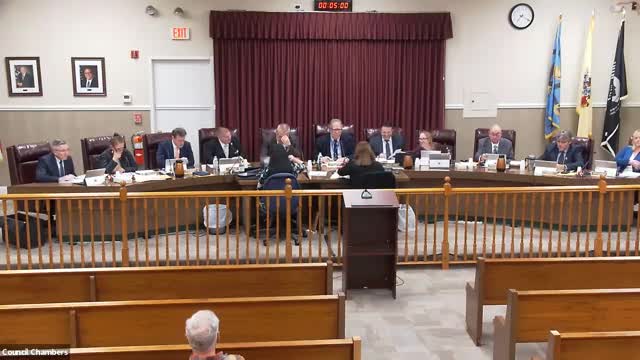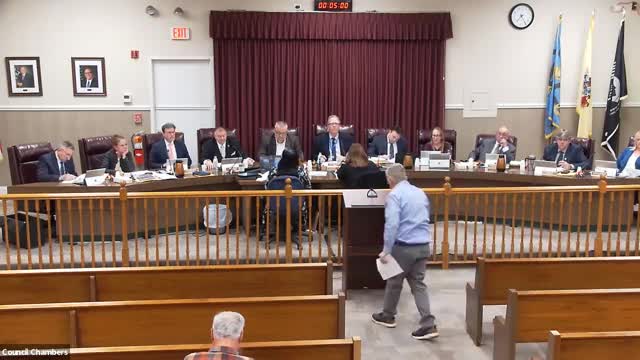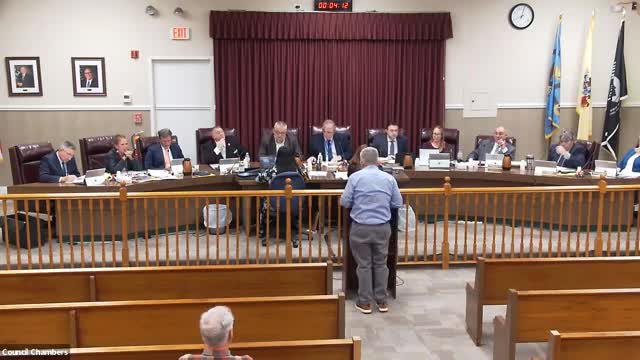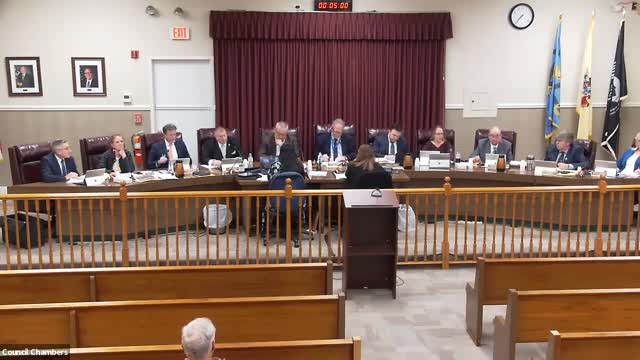Article not found
This article is no longer available. But don't worry—we've gathered other articles that discuss the same topic.

Sayreville council adopts bamboo‑planting and athletic‑organization ordinances; several new ordinances introduced

Sayreville council adopts resolution settling fourth-round affordable-housing obligation after public questions

Residents press council on frequent outages, streetlights and shooting‑range noise; officials say JCP&L correspondence under review

